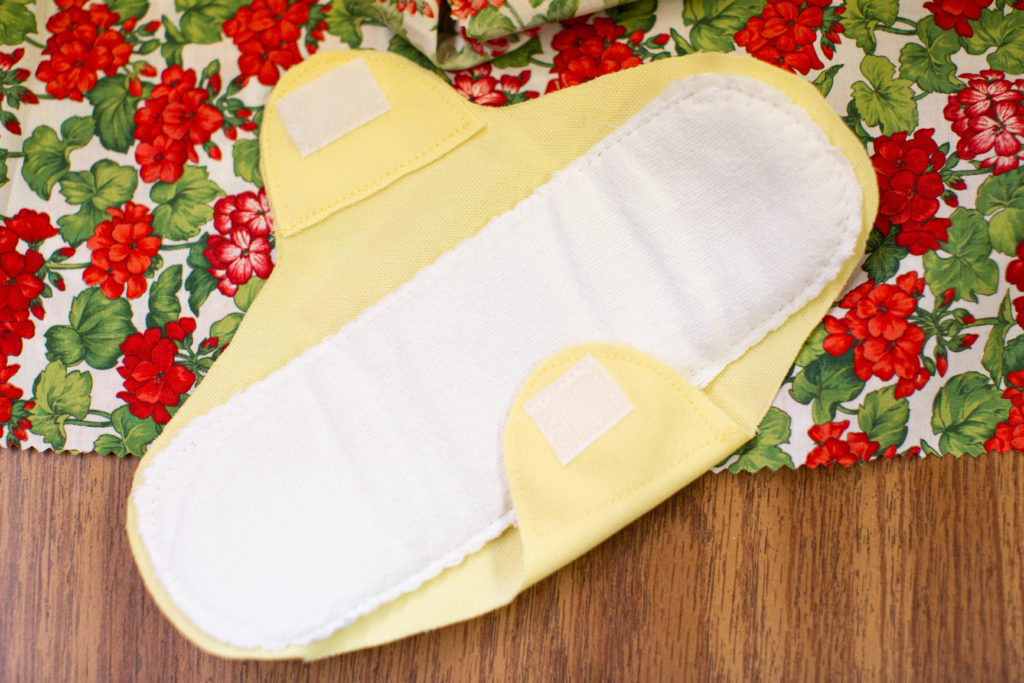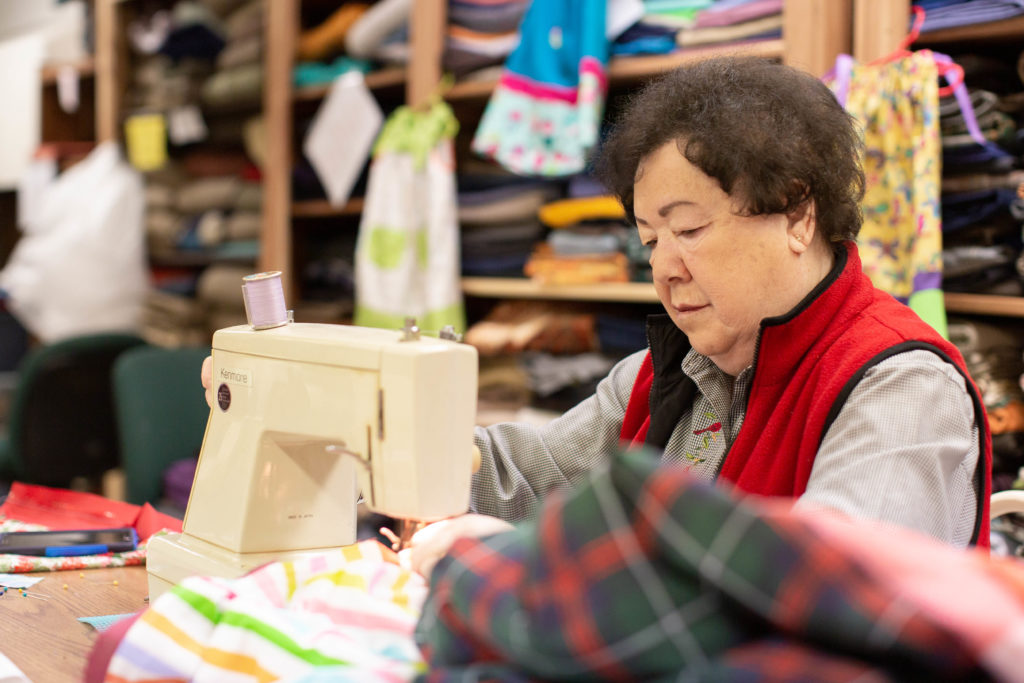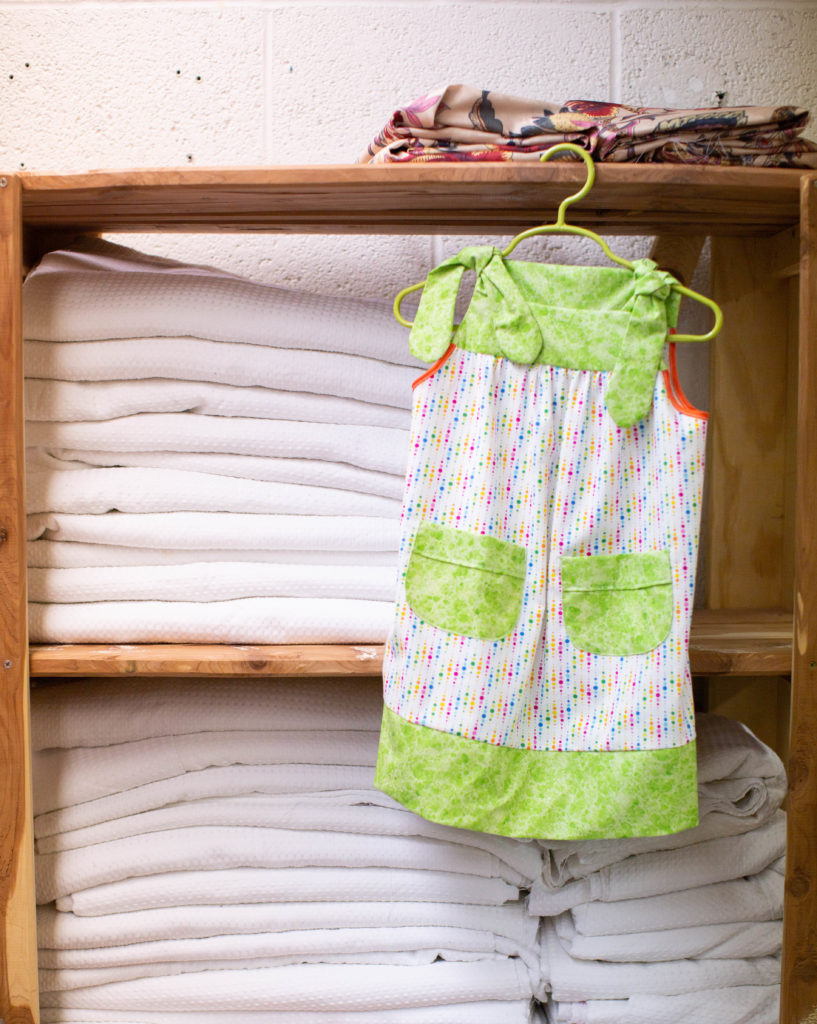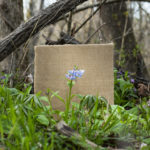By Nicolette Baker
Women do incredible things. Here, we feature the stories of women who are a part of the Southeast Missouri community by way of living here, being from here or passing through. We hope these stories inspire you to connect with others and that they encourage you to be who you are in the world. We need you and your unique gifts.
This story was first published in the May 2020 issue of “The Best Years (TBY).”
For many women around the world, access to education is not always guaranteed. Granting better access to resources such as feminine hygiene products may expand the opportunity of staying in school to more young women.
For the past three years, Dianne Rellergert of Cape Girardeau has been creating hundreds of washable, reusable sanitary pads to help young women in Haiti, Honduras and countries in Africa continue their education.
The most recent donation shipment sent 200 of the reusable feminine products to Honduras, Rellergert’s friend and fellow church member Kathy Berkbigler says. Rellergert sews the feminine hygiene products using materials donated to St. Vincent de Paul Catholic Church in Cape Girardeau, where she also works in the “Ugly Quilt” sewing group.
Rellergert says the importance of creating reusable feminine products lies in the freedom they give to allow girls to continue their education. She says young girls may halt their education after receiving their “surprise” — as Rellergert refers to the onset of puberty and regular menstrual cycles — and Santi Pantis may give the opportunity for those individuals to stay in school.
“The girls don’t want to go to school when their ‘surprise’ is — and I don’t blame them,” Rellergert says. “But if they want to use [Santi Pantis], they can go on and go to school.”
United Nations Children’s Fund (UNICEF) reports that worldwide, young women may feel the need to stay home from school following their first menstrual cycle to avoid embarrassment or teasing from their peers. The UNICEF website lists cloth sanitary pads, as well as the provision of soap and water, as important factors in keeping girls in schools. In the past, UNICEF has partnered with primary schools in locations such as Chitipa, Malawi, to provide private and safe facilities to care for young women’s needs during the school day.
The Global Partnership for Education draws a connection between continuing education and better opportunities for young women. In a statement on the organization’s website, it states that if all women were allowed to complete their education, child marriage would greatly be reduced. In addition, they report that higher wages for women are associated with higher education levels.
While the project can have a far-reaching impact, the process for creating Santi Pantis is quite simple.
Rellergert begins by cutting double-knit fabric and polyurethane laminate (PUL) from a pattern she sourced from the internet. PUL fabric is laminated and often used for projects that require leak-proof fabric, such as cloth diapers. Rellergert says this type of fabric, which she finds at a local craft store, is important in creating the reusable sanitary pads.
Rellergert then stacks three to four layers of PUL, which provides a thick barrier from leaks. She machine sews this together using a straight stitch, then sews over the edges with a zigzag stitch to prevent fraying.
Next, she attaches the white PUL pad to a larger piece of colored double-knit fabric. She uses a variety of colors in her feminine product project — the items may be yellow, blue, white or beige. She also attaches Velcro to the “wings” of the double-knit sanitary pad with a machine-sewn straight stitch.
The knit is important to prevent unraveling from the fabric’s raw edges, Rellergert says, and may withstand more washing and wear.
It is estimated that a woman might spend some $1,773.33 in feminine hygiene products in her lifetime, as reported by the Huffington Post. As the Santi Pantis created by Rellergert can be washed and reused compared to disposable sanitary pads and tampons, they also remove or greatly lower that cost for individuals receiving the donations.
In addition to the Santi Pantis she creates, Rellergert also sews shorts and dresses for the Atai Orphanage Fund. Founded by Annah Emuge, the fund provides resources such as clothing and health care for an orphanage in Agu, Uganda. Rellergert discovered this organization, which accepts handmade donations, while doing online research.
The dresses, created from cotton fabric donated to the church, feature ties and elastic for easy dressing. From sunny yellow fabric to cupcake designs, Rellergert incorporates different patterned cotton and designs into her donations. She says she also tries to include different-sizing in her designs, including larger sizes for older children.
Through the six years she’s created children’s clothing and three years creating cloth sanitary pads, Rellergert says she has created around 1,115 dresses, 380 boys’ shorts and countless Santi Pantis. Feminine hygiene products may be something many of us take for granted, but for young women across the world, it can mean the difference in continuing their education.




